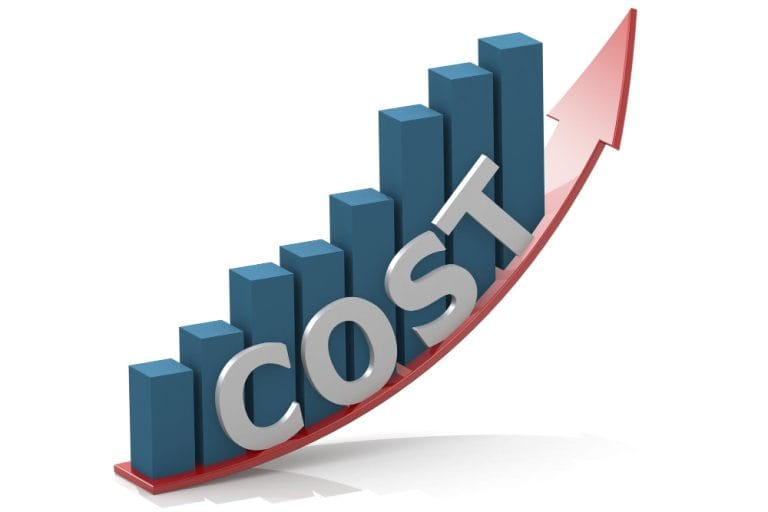This guide covers everything you need to know about checking your credit score, why it’s critical for your small business, and actionable advice to maintain or improve your score.
What Is a Credit Score?
A credit score is a numerical representation of your creditworthiness. It’s a figure that financial institutions, lenders, or creditors use to evaluate how likely you are to repay a loan or meet other financial obligations. Scores typically range from 300 to 850, with higher scores indicating better credit health.
How Is a Credit Score Calculated?
Credit scores are calculated based on several factors:
- Payment History (35%)
Whether or not you pay your bills on time has the most significant impact on your credit score.
- Credit Utilization (30%)
This is the percentage of your available credit that you’re using. Keeping it low improves your score.
- Credit History Length (15%)
How long have you had credit accounts open? Longer histories are better.
- Credit Mix (10%)
A good mix of revolving credit (like credit cards) and installment loans (like auto loans) can boost your score.
- New Credit (10%)
Each new credit account slightly affects your score so frequent applications can lower it.
Why Your Credit Score Matters for Your Small Business
Your credit score isn’t just a personal finance metric—it’s a powerful tool for your business. Here’s why maintaining a good credit score matters:
- Access to Business Loans
Want to expand your business, invest in new equipment, or manage cash flow? A strong credit score increases your chances of approval for business loans with favorable terms.
- Lower Interest Rates
Businesses with better credit scores often qualify for lower interest rates, saving thousands of dollars on debt repayment.
- Supplier Relations
Suppliers and vendors might assess your creditworthiness before extending payment terms, giving you more flexibility to manage inventory.
- Investor Confidence
A good credit score projects financial stability, making your business more attractive to investors or partners.
How to Check Your Credit Score in Singapore
Checking your credit score regularly is a key step toward maintaining financial health. Here’s how Singapore-based businesses and individuals can check their credit scores for free or at minimal cost:
Step 1: Visit Credit Bureau Singapore (CBS)
The Credit Bureau Singapore (CBS) is a trusted organization that maintains credit information.
- Visit CBS’s website.
- Create an account or log in to access your credit report.
Step 2: Check Eligibility for a Free Report
CBS offers one free credit report if you’ve recently applied for a new credit product (e.g., a credit card, mortgage, or business loan). Confirm with your bank or lender to find out if you’re eligible.
Step 3: Request Your Credit Report
If you don’t qualify for a free report, you can purchase one for a small fee (around S$6.42).
- Pay online and receive the report instantly.
- Alternatively, visit participating SingPost branches to request a report in person.
Step 4: Review Your Credit Report
- Ensure details like your name, NRIC, and credit account information are accurate.
- Review any late payment records or defaults that may impact your score.
Step 5: Monitor Regularly
Make it a habit to check your credit score every 6–12 months. Regular monitoring helps you spot inaccuracies or changes you must address before applying for business loans or new credit.
Tips to Improve Your Credit Score
A low credit score isn’t the end of the story—it can be rebuilt over time. Here are practical steps to improve and maintain your credit score:
1. Pay Bills on Time
This is non-negotiable. Set up reminders or automate payments to ensure you never miss due dates.
2. Keep Your Credit Utilization Low
Keep your credit card balances below 30% of your total credit limit. For example, if your limit is $10,000, aim to use no more than $3,000 at a time.
3. Avoid Frequent Credit Applications
Each time you apply for a loan or credit card, it triggers a hard inquiry, which can lower your credit score. Be selective about the credit products you apply for.
4. Check for Errors in Your Credit Report
Errors in your credit report, like incorrect late payments or accounts that don’t belong to you, can hurt your score. Dispute any inaccuracies with CBS promptly.
5. Diversify Your Credit
Lenders like to see a mix of credit types. If possible, evenly balance between revolving credit (like credit cards) and installment loans (like mortgages).
6. Build a Longer Credit History
If you’re new to credit, keep old accounts open (even if unused) to build a more extended credit history, positively impacting your score.
7. Stay Within Your Limits
Maxing out your credit limits indicates financial stress to lenders, which can hurt your creditworthiness.
Build Your Financial Future With Confidence
For small businesses and entrepreneurs, a strong credit score isn’t just a number—it’s a gateway to funding, growth, and financial flexibility. By understanding your score, actively monitoring it, and taking proactive steps to improve it, you can better position yourself and your business to thrive.
Start today by checking your credit score through trusted resources like Credit Bureau Singapore. Remember, financial health starts with awareness, and every positive step you take brings you closer to your goals.





